Yeat is in a never ending battle between his demons and self-awareness. His voice cracks when he raps with fractured autotune as he laments his addictions. He speaks in his own lexicon that fans have integrated into a cultish slang. The serrated rage beats hide the deeper layers of the Los Angeles rapper. In the age of TikTok, zapped attention spans, overpriced streetwear and designer drugs, Yeat manifested teenage angst. He’s the id of the modern-day, post-pandemic youth, resulting from broken law systems, depression, and a society where drugs are cheaper than therapy, or at least, he stood for that at one time.
After putting himself on the map with the releases of 4L and Up 2 Me in 2021, going viral for the bells heard in the beats, Yeat swiftly became an internet sensation. Last year, Yeat issued two releases: 2 Alive and Lyfe. He began experimenting with his sound on Lyfe. The music still worked with his signature selection of rage beats, but he gravitated towards darker industrial production that mirrored the morning after a night on Molly. For example, on “Can’t Stop It,” the atmosphere feels fit for the final showdown between the main protagonist and the story villain, but in this case, it’s Yeat and his Percocet devils. Afterlyfe is Yeat’s new album and his first offering of 2023, continuing to experiment with his sound but further distancing himself from what made him unique in the first place.
Yeat’s allure came from the enigmatic flourishes in his music; the mysterious accents, outlandish pronunciations, and varying vocal sound effects. The chaos he dialed up during this rise sounded like the apocalypse coming to fruition, he even made the minions kind of cool, if that doesn’t signal the four horseman to descend onto our world nothing will. That extraterrestrial weirdness is absent from Afterlyfe; instead, it conforms to mainstream cliches. During Afterlyfe’s 68 minutes and it’s exhausting 22-song track list, it’s hard to immerse yourself into his world compared to past work due to poor songs and sequencing. There are exhilarating moments on Afterlyfe, but they are scarce and scattered throughout the tape.
Afterlyfe moves away from rage beats and emphasizes the use of heavy industrial production. On the opening track, “No More Talk,” Yeat is riding in a Urus while all of his devils are heckling him. A few lines later, he’s calling himself a yeti—an abominable monster— for all the white Margelia he’s wearing. It paints a vivid portrait of a man possessed by his desire for material wealth. NBA Youngboy joins him on the next track, “Shmunk”, which sounds like it time-traveled from the future. Youngboy—who just released a rage album—sounds exceptional in different settings, filling his lines with his proverbial stick talk. “Better Off” is vintage Yeat, bells crashing in the background amongst the autotuned wailing. Yeat fluctuates his voice in different pitches, warping his words. He exclaims he’s not from this planet while talking to his gun. It’s so animated it could be ripped from a Elmer Fudd cartoon.
Somehow, back to back, Afterlyfe manages two of the worst songs in Yeat’s career. “Rav3 Party” starts with an ugly autotuned yell, followed by an electronic trance beat that makes you feel like you’re in a shitty European dance club. Yeat repeatedly states he’s on the edge, popping X, and that it’s “not a flex.” The Working on Dying produced “Nun Id Change” sounds like another failed attempt at a rave hit that comes off as awkward and embarrassing. Other moments on Afterlyfe land flat and miss the mark. “Now” is lackluster and uneventful, with Yeat terribly crooning that he now has money. He has the same excitement as someone that received an Edible Arrangements basket. The closer “Myself” slogs along with drawn out guitar strings and slow drums soundtracking Yeat’s incoherent dribble about drug damage.
When Yeat’s vision comes to fruition, the results produce work that shows he’s still trying. “Slamm” has enough boisterous energy to fuel a KOTD event. The way he pronounces “Slam” on the hook sounds like demonic possession. It’s the definitive Yeat sound, rawkus and destructive, fun and packed with adrenaline. “7 Nightz” is a change of pace for Yeat; it’s reflective and introspective. His voice breaks into a rasp, sounding like he’s been up for a week on a diet of Percocet and lean. It’s a rush of drugs, unfathomable amounts of money, and a blur of women that turns into overindulgence. It’s one of the purest moments of vulnerability from Yeat where it’s actually believable. “Split” and “Heavyweight” tap into the rage pool, created with rattling the concrete walls of Terminal 5 in mind.
Afterlyfe isn’t a departure in sound; it’s an experimental experience that delivers some of Yeat’s most exciting and worst work. The content is darker, more bitter towards his peers and the rap game as his inward gaze takes precedence. While there’s moments of absolute ecstasy, the misfired experimentation drowns that out. And despite some clear attempts at growth, as Yeat progresses and continues to ascend from a discord darling to a bonafide rap caviar, advertiser friendly rapper—a guy you’ll hear in the background at the NFL draft or NBA2k’s soundtrack if you don’t mute your tv—he’s sounding less like himself and more like his mainstream peers.


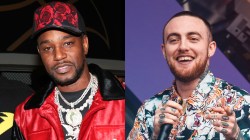
![Method Man Admits He Didn't Like Drake's "Wu-Tang Forever": "I [Wasn't] Getting On That"](https://hiphopdx.com/wp-content/uploads/2025/12/method-man-drake-wu-tang-forever-remix.jpg?w=250)
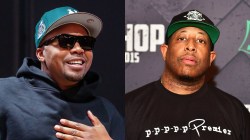
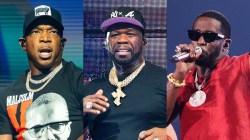
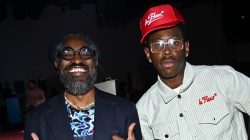

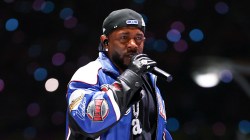

anything below a 5 out of 5 is invalid
anythigng below a 5/5 is invalid
idek how whoever writ this thinks rav3 p4rty and nun id change are his worst songs
anything below 5/5 is invalid